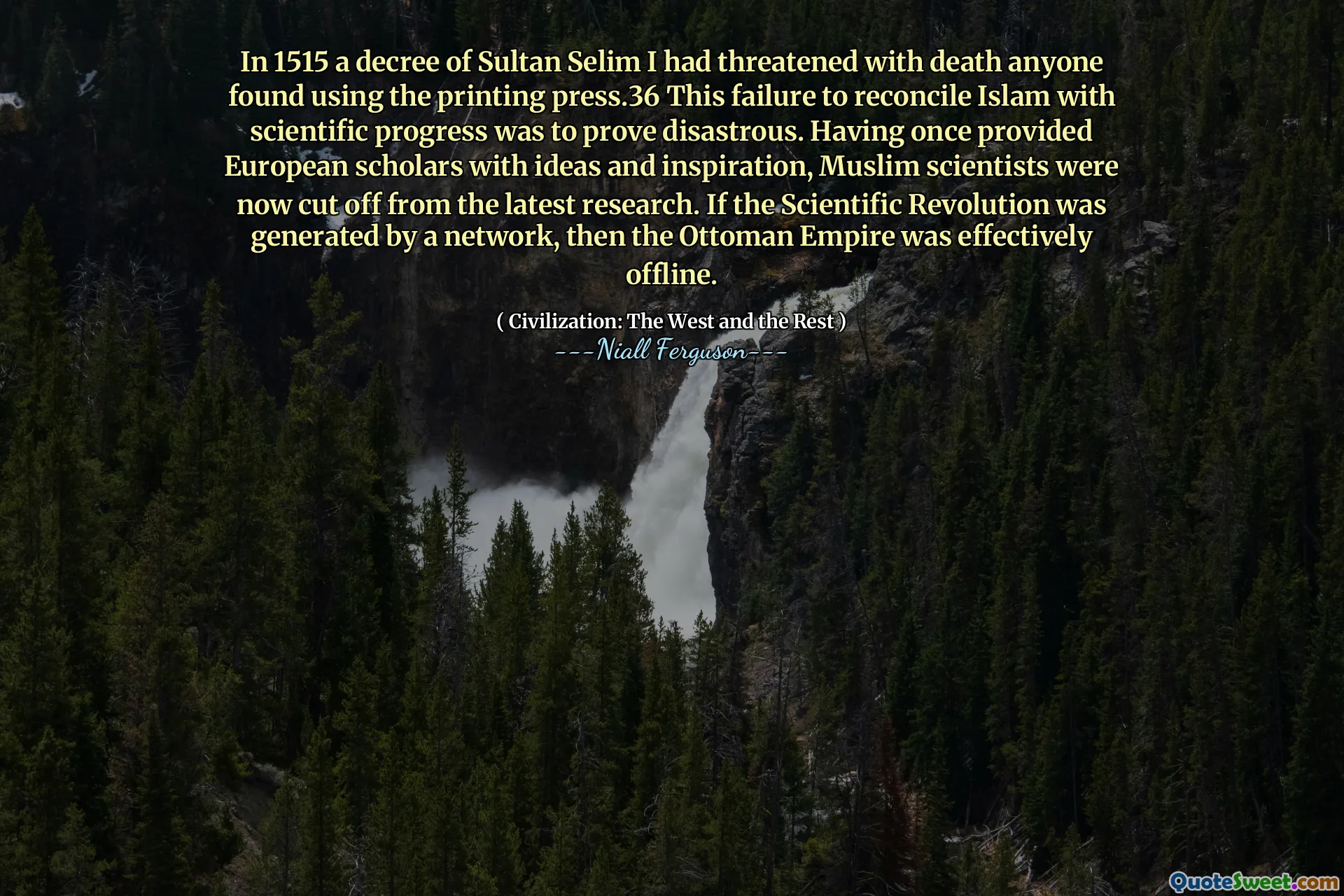
In 1515 a decree of Sultan Selim I had threatened with death anyone found using the printing press.36 This failure to reconcile Islam with scientific progress was to prove disastrous. Having once provided European scholars with ideas and inspiration, Muslim scientists were now cut off from the latest research. If the Scientific Revolution was generated by a network, then the Ottoman Empire was effectively offline.
In 1515, Sultan Selim I issued a decree that imposed the death penalty on anyone caught using the printing press. This action highlighted the difficulties in aligning Islamic principles with advancements in scientific knowledge, leading to significant negative consequences for the Muslim world. Once a source of inspiration and ideas for European scholars, Muslim scientists found themselves disconnected from contemporary research and developments.
The situation left the Ottoman Empire in a vulnerable position during a time of intellectual upheaval known as the Scientific Revolution. While Europe thrived on the exchange of knowledge and ideas, the empire's restrictions effectively isolated it from the collaborative networks that fostered innovation, leaving it "offline" from the scientific advancements of the period.











